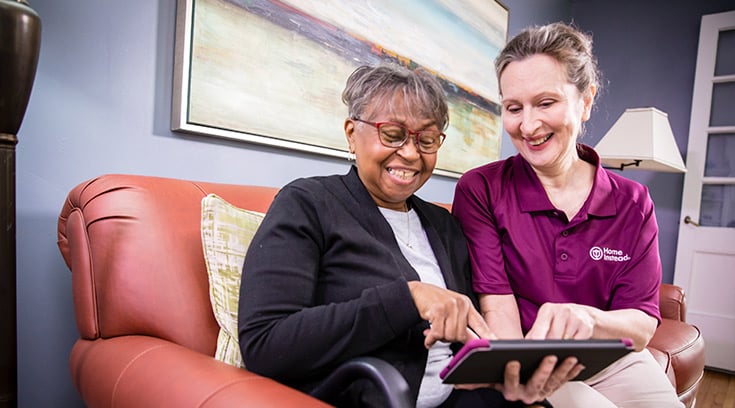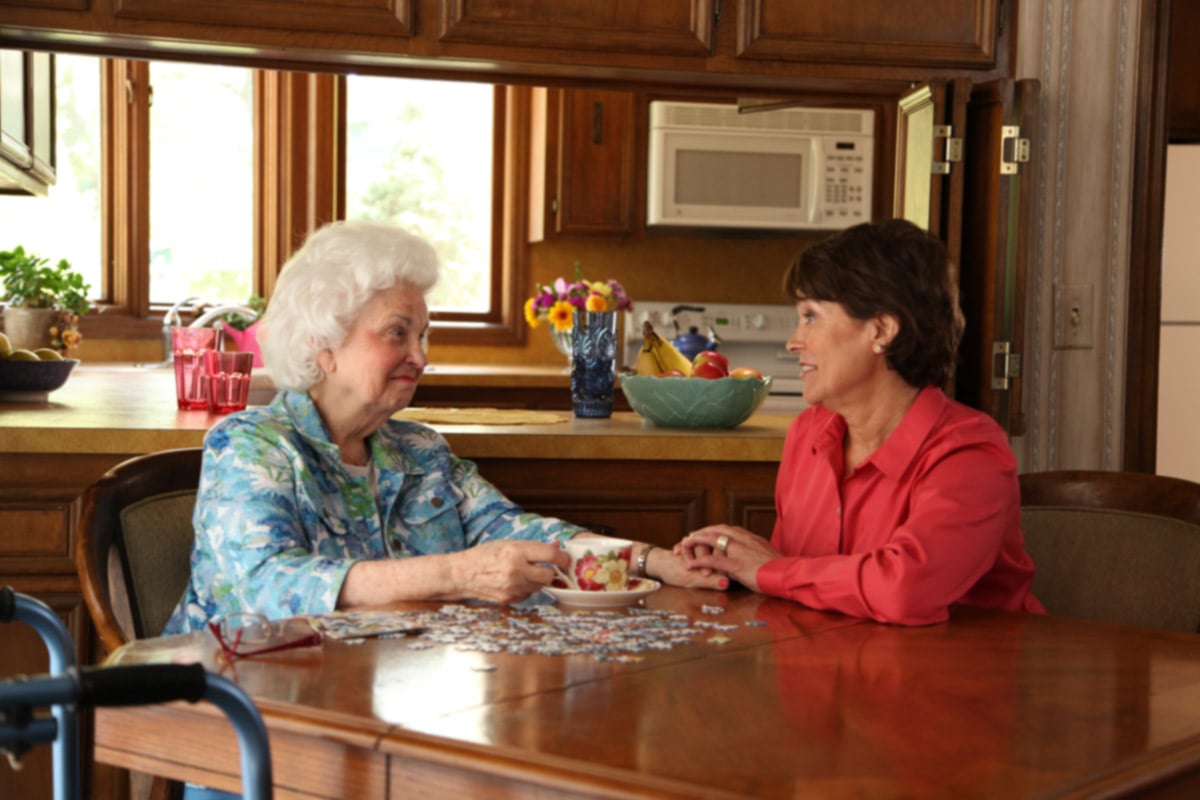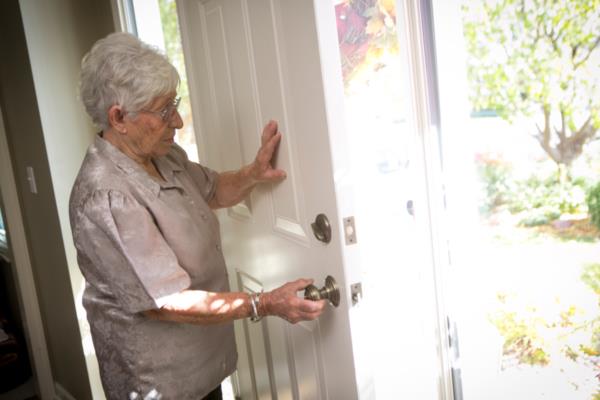“Most days Mom just sat in her armchair in front of the TV with a glazed look in her eyes. I tried to perk her up by talking about what was on the news or what I was cooking for dinner, but she didn’t seem interested. With her Alzheimer’s, I’m not even sure she understood what I was saying.”
One day, a commercial came on for engagement rings, and I casually asked her, “Mom, do you remember when Dad proposed to you?” Suddenly her eyes lit up, as if I had unlocked a long-forgotten memory that brought her great joy. She proceeded to tell me the proposal story in great detail, which was more than I had heard her talk in weeks. I discovered Mom retained many vivid recollections of her past, and she seemed delighted to tell me her stories. All I had to do was ask a good question.
Asking questions can spark a meaningful conversation full of special memories. Someone living with Alzheimer’s disease or other dementias will particularly appreciate the opportunity to pass on personal history and wisdom before it’s too late. When you begin a conversation, prompt the person with dementia to elaborate by asking open-ended questions and then listen patiently.
By asking good questions, you’re inviting your family member with dementia to share important life experiences that you can continue to remember and cherish even when that person no longer can. You’ll not only enrich your loved one’s life during the moments those memories are shared, but you’ll be able to preserve the memories until it’s time to pass them along to the next generation.
One day, a commercial came on for engagement rings, and I casually asked her, “Mom, do you remember when Dad proposed to you?” Suddenly her eyes lit up, as if I had unlocked a long-forgotten memory that brought her great joy. She proceeded to tell me the proposal story in great detail, which was more than I had heard her talk in weeks. I discovered Mom retained many vivid recollections of her past, and she seemed delighted to tell me her stories. All I had to do was ask a good question.
Asking questions can spark a meaningful conversation full of special memories. Someone living with Alzheimer’s disease or other dementias will particularly appreciate the opportunity to pass on personal history and wisdom before it’s too late. When you begin a conversation, prompt the person with dementia to elaborate by asking open-ended questions and then listen patiently.
Questions to Start a Conversation with Someone Living with Alzheimer's
- What chores did you have to do when you were growing up?
- When you were a teenager, what did you and your friends do for fun?
- What are some of the most valuable things you learned from your parents?
- What did your grandparents and great grandparents do for a living?
- When you were growing up, what did you dream you would do with your life?
- What accomplishments in your life are you most proud of?
- What are some of the things you are most grateful for?
- What was the happiest moment of your life?
- How would you like to be remembered?
By asking good questions, you’re inviting your family member with dementia to share important life experiences that you can continue to remember and cherish even when that person no longer can. You’ll not only enrich your loved one’s life during the moments those memories are shared, but you’ll be able to preserve the memories until it’s time to pass them along to the next generation.
Person-Centered Dementia Care
Home Instead Care Professionals are trained using a one-of-a-kind protocol for Alzheimer’s and other dementias. Our person-centered approach honors your loved one and preserves their dignity.




